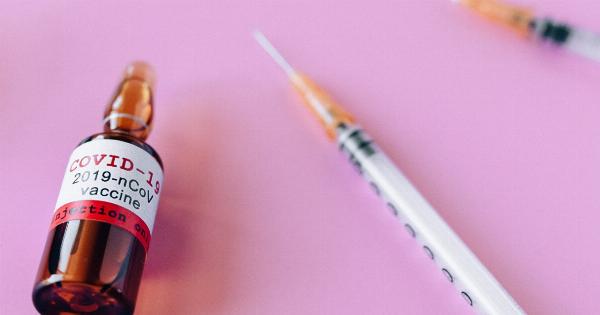Otitis media, also known as a middle ear infection, is a common childhood ailment that affects many children worldwide. It occurs when the middle ear becomes inflamed and infected.
The condition can cause pain, hearing loss, and other complications if left untreated. To effectively manage otitis media in kids, rational antibiotic use and appropriate treatment duration are crucial factors to consider.
Causes of otitis media in kids
Otitis media is primarily caused by a bacterial or viral infection. It often develops following a respiratory tract infection or a cold.
The bacteria or viruses enter the middle ear through the Eustachian tube, which connects the middle ear to the back of the throat. The immature immune system and underdeveloped Eustachian tubes in children make them more susceptible to such infections.
Symptoms of otitis media
The signs and symptoms of otitis media may vary depending on the severity of the infection. Common symptoms include:.
- Ear pain or discomfort
- Tugging or pulling at the ear
- Irritability or fussiness
- Difficulty sleeping
- Difficulty hearing or responding to sounds
- Fluid drainage from the ear
- Fever
If your child shows any of these symptoms, it is essential to seek medical attention for proper diagnosis and treatment.
Diagnosis and treatment
To diagnose otitis media, a healthcare professional will examine your child’s ears using an otoscope. This device allows them to visualize the eardrum and look for signs of infection, such as redness, bulging, or fluid accumulation.
In some cases, a sample of the middle ear fluid may be collected for further testing.
Depending on the severity of the infection, treatment options may vary. In mild cases, the infection may resolve on its own without the need for antibiotics. Pain relievers and localized ear drops may be recommended to alleviate discomfort.
However, in moderate to severe cases, antibiotics are often prescribed to prevent complications and speed up recovery.
Rational antibiotic use
Rational antibiotic use is crucial to minimize the development of antibiotic resistance and ensure the effective treatment of otitis media. Antibiotics should only be prescribed if the infection is caused by bacteria or if the symptoms are severe.
Overprescribing antibiotics for viral infections or mild cases of otitis media can contribute to antibiotic resistance.
Prior to prescribing antibiotics, healthcare professionals may consider various factors such as the child’s age, overall health, symptom severity, and risk of complications.
They may also assess whether watchful waiting can be an appropriate strategy, allowing the body’s immune system to clear the infection without the use of antibiotics.
Appropriate treatment duration
The duration of antibiotic treatment for otitis media in kids depends on several factors, including the chosen antibiotic, the child’s age, and the severity of the infection.
In general, a typical course of antibiotics for otitis media lasts between 7 and 10 days.
It is crucial to complete the full course of antibiotics even if symptoms improve before the medication is finished.
This ensures that all bacteria causing the infection are eradicated and reduces the risk of recurrent infections or antibiotic resistance.
Prevention strategies
Preventing otitis media in kids can help reduce the need for antibiotics and the occurrence of recurrent infections. Here are some effective prevention strategies:.
- Promote good hygiene practices, such as frequent handwashing
- Ensure timely vaccinations, including pneumococcal and influenza vaccines
- Limit exposure to secondhand smoke
- Encourage breastfeeding as it can help boost the child’s immune system
- Prevent the sharing of utensils and other items that may spread infections
- Manage allergies effectively to minimize the risk of otitis media
- Practice proper bottle feeding techniques, including holding the baby in an upright position
Conclusion
Otitis media is a common childhood ear infection that requires proper diagnosis and treatment.
Rational antibiotic use and appropriate treatment duration are essential to minimize complications, prevent antibiotic resistance, and ensure a successful recovery. By following preventive measures, parents and caregivers can significantly reduce the incidence of otitis media in their children.






























